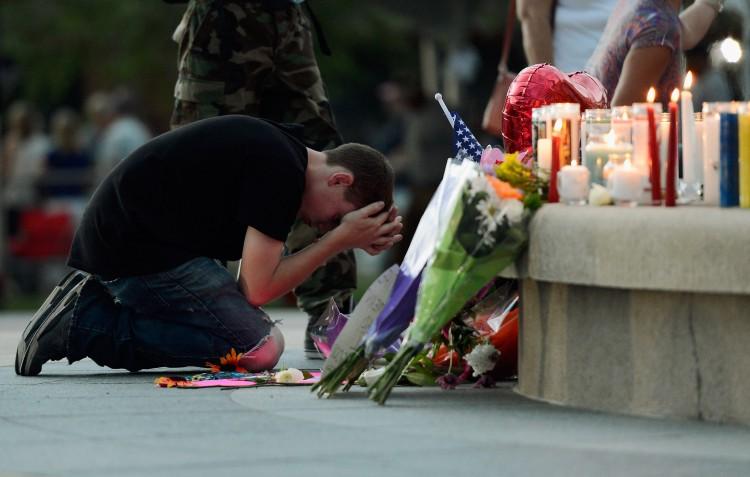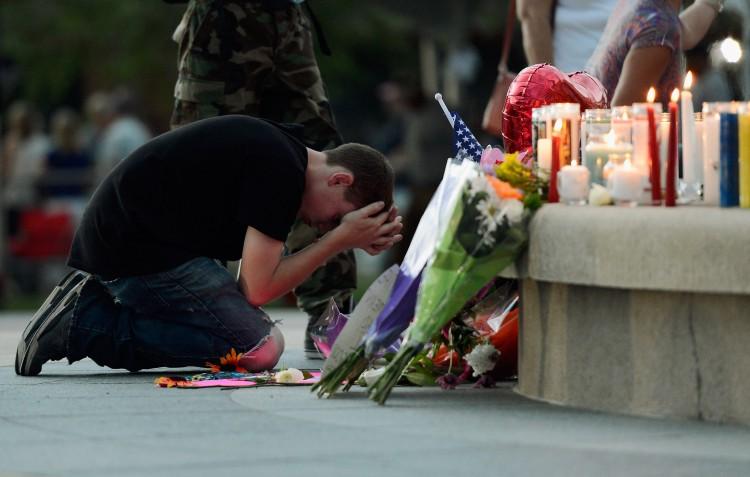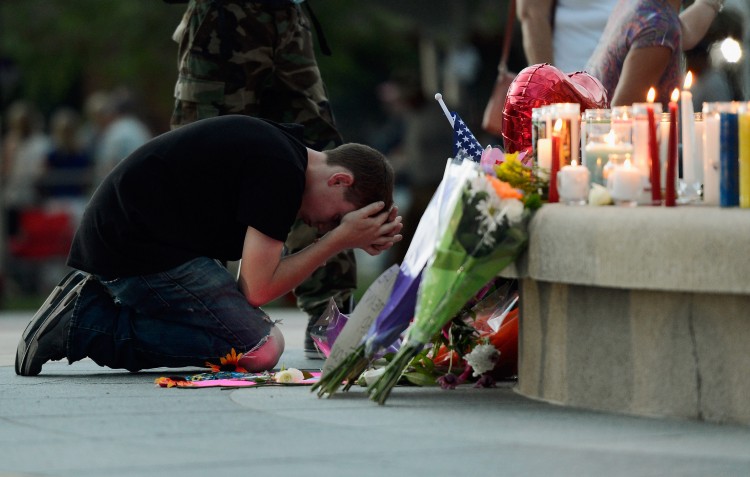As a new week dawns, the shattered families in Aurora, Colo., face a very different world from the days before the mass shootings at the local cinema, the lethal attack by a lone gunman predicted to impact for years to come.
“It has generational consequences,” said Dr. Mary Ellen O'Toole, among the FBI’s most senior criminal profilers before her retirement in 2009. “All the people watching it; it is like it has changed our emotional DNA.”
Suspect James Holmes, 24, appeared for the first time in court Monday in Arapahoe County, looking wide-eyed and disheveled with dyed red hair. He is being held in isolation and without bond on suspicion of first-degree murder. It is likely he will also face additional counts of aggravated assault and weapons violations.
A reportedly quiet but smart science graduate student, he was arrested by Aurora police in the rear parking lot of the theater minutes after allegedly shooting 12 people and injuring over 50 last Friday.
Mostly in their 20s—although some were children—the victims had been watching the midnight premier of the new Batman movie “Dark Knight Rising” when the gunman appeared in the theater, throwing down two gas canisters before shooting into the audience.






